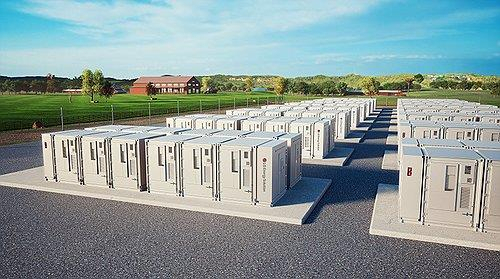South Korea Launches 1 Trillion Won ESS Market

A large-scale battery energy storage system (ESS) market, estimated to be worth 1 trillion won, is officially opening.
On May 22, the Ministry of Trade, Industry and Energy (MOTIE) announced its plan to introduce a large-scale ESS with a capacity of 540 megawatts (MW) to address power shortages and generation output control (power generation restrictions) in both mainland and Jeju Island. ESS functions as an “electric reservoir,” storing electricity during periods of overproduction and releasing it during times of high demand.
Through this ESS central market contract bidding, MOTIE plans to introduce 500MW and 40MW ESS to the mainland and Jeju Island, respectively. This reflects the ESS introduction scale included in the 11th Basic Plan for Long-Term Electricity Supply and Demand, finalized in February of this year.
Considering the 6-hour charging time of this ESS, the actual installed capacity is expected to reach 3,000 megawatt-hours (MWh) on the mainland and 240MWh in Jeju. 3,000MWh is equivalent to the amount of electricity consumed by approximately 8,600 households in one month.
This marks the first nationwide introduction of ESS facilities operated under the direction of Korea Power Exchange (KPX). The government previously conducted a central market bidding in August 2023 to introduce a 65㎿ ESS to Jeju. A MOTIE official explained, “Recently, output control due to power shortages has occurred in inland areas during spring and autumn, when electricity demand is relatively low, leading to the promotion of additional ESS introduction.” The growing social conflict over who should bear the losses from halting some coal and thermal power plants during spring and autumn, when electricity demand is relatively low due to less use of air conditioners and heaters, has also heightened the need for ESS expansion.
Meanwhile, government and industry insiders estimate the construction cost of the planned ESS introduction to be around 1 trillion won. The government plans to comprehensively evaluate not only price factors but also non-price factors such as grid contribution and safety, and select the final bidder in July. Industry observers predict that domestic battery manufacturers, including LG Energy Solution, SK On, and Samsung SDI, will compete, considering the evaluation criteria include domestic industry contribution and battery recycling. A MOTIE official stated, “This ESS introduction will strengthen grid stability despite the variability of renewable energy,” and added, “It is expected to reduce the frequency of output control for renewable energy generation.”
More information: https://www.businesskorea.co.kr/news/articleView.html?idxno=242934


